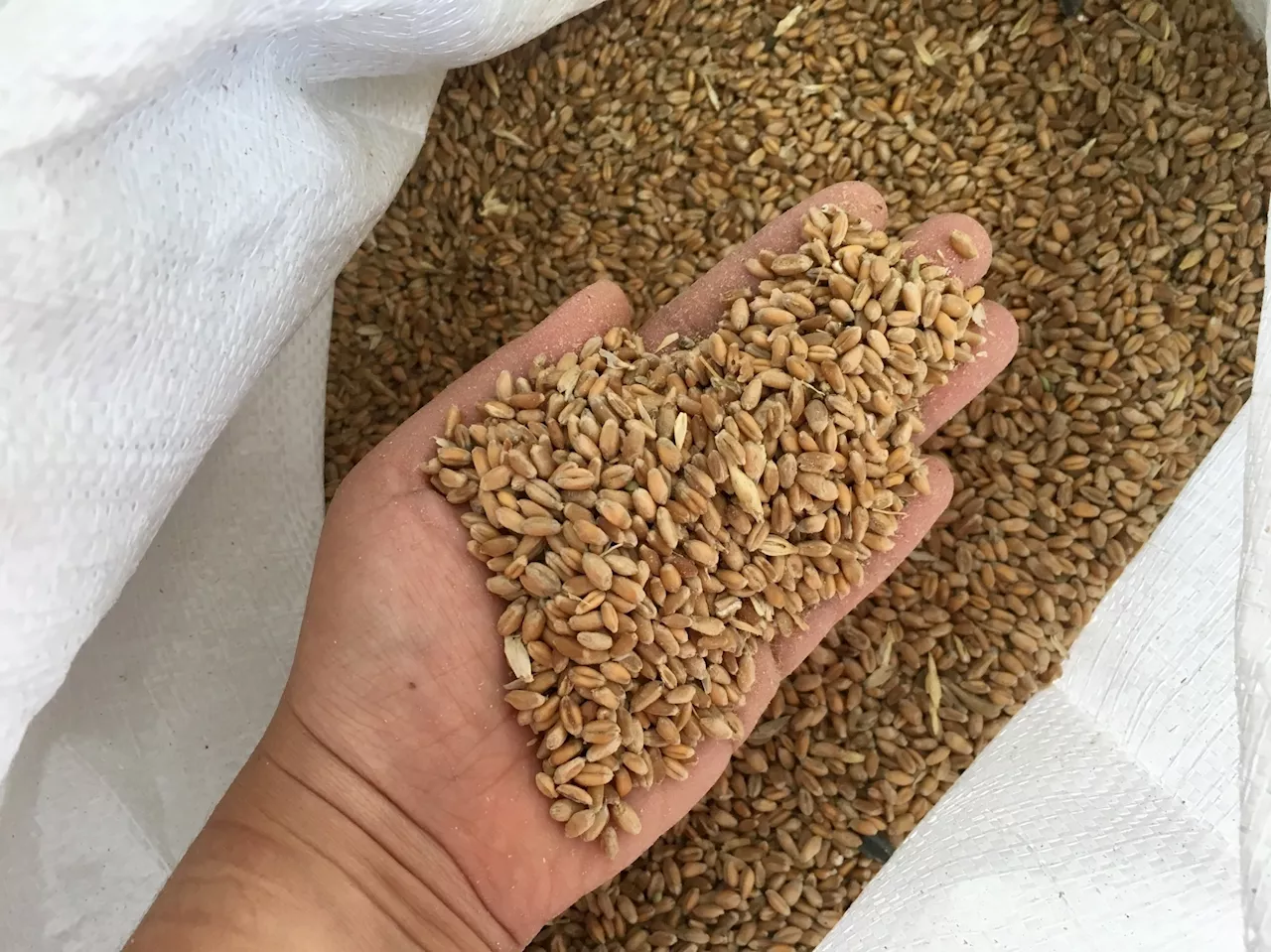Study reveals that human gut bacteria, particularly Mitsuokella jalaludinii, efficiently degrade dietary phytate into short-chain fatty acids, enhancing health benefits through microbial synergy.
By Tarun Sai LomteJun 12 2024Reviewed by Susha Cheriyedath, M.Sc. In a recent study published in the journal Nature Microbiology , researchers investigated how the human gut bacteria metabolize dietary phytate.
Dietary phytate supplementation has been shown to promote epithelial repair, improve glucose metabolism, and reduce inflammation. However, the underlying molecular mechanisms are elusive. Phytate is involved in insulin signaling, glucose metabolism, cancer metastasis, and cell migration. It is synthesized during intracellular myoinositol metabolism and is among the most abundant inositol phosphates in mammals.
The fecal microbiome of donor A metabolized 13C6 InsP6 to 13C2 acetate and 13C3 3-hydroxypropionate within a few hours to 13C3 propionate after 24 hours. On the other hand, the fecal microbiome of donor B slowly metabolized 13C6 InsP6 to 13C2 acetate and 13C4 butyrate. Next, the genomic DNA from the third non-labeled phytate enrichment was isolated for sequencing.
Related StoriesIts genome was similar to a type-strain DSM13811T and had highly similar phytate degradation pathway genes. Next, M. jalaludinii DSM13811T was cultured in a medium with myoinositol or phytate. It grew rapidly in the phytate medium, doubling in 3.4 hours, compared to 7 hours in the myoinositol medium. However, metabolite production remained similar between conditions.
Next, the team examined the synergy between Anaerostipes rhamnosivorans and M. jalaludinii in phytate degradation, given that the supplementation of A. rhamnosivorans in fecal phytate enrichments has been shown to elevate propionate formation. Acetate and propionate were detected in co-cultures, but lactate and 3-hydroxypropionate accumulated only in the M. jalaludinii monoculture. The synergy was due to an interspecies transfer of 3-hydroxypropionate.
Fatty Acids Cancer Cell Cell Migration Genes Glucose Glucose Metabolism Inflammation Inositol Insulin Intracellular Metabolism Metabolites Metastasis Microbiology Microbiome Wheat
United Kingdom Latest News, United Kingdom Headlines
Similar News:You can also read news stories similar to this one that we have collected from other news sources.
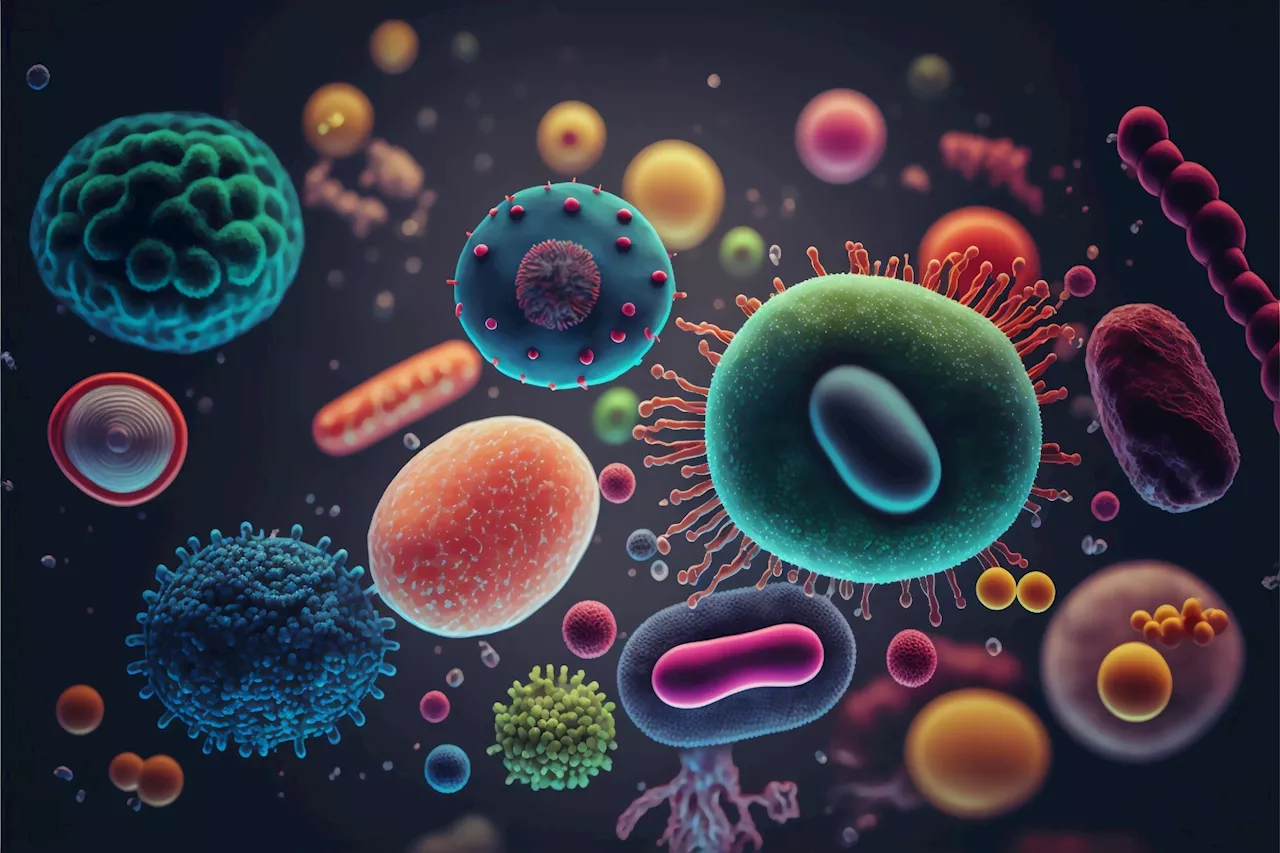 Diet and gut microbiota: how what you eat shapes your gut healthA systematic review published in Gut Microbes found that diet patterns, nutrients, bioactive compounds, and food additives influence gut microbiota.
Diet and gut microbiota: how what you eat shapes your gut healthA systematic review published in Gut Microbes found that diet patterns, nutrients, bioactive compounds, and food additives influence gut microbiota.
Read more »
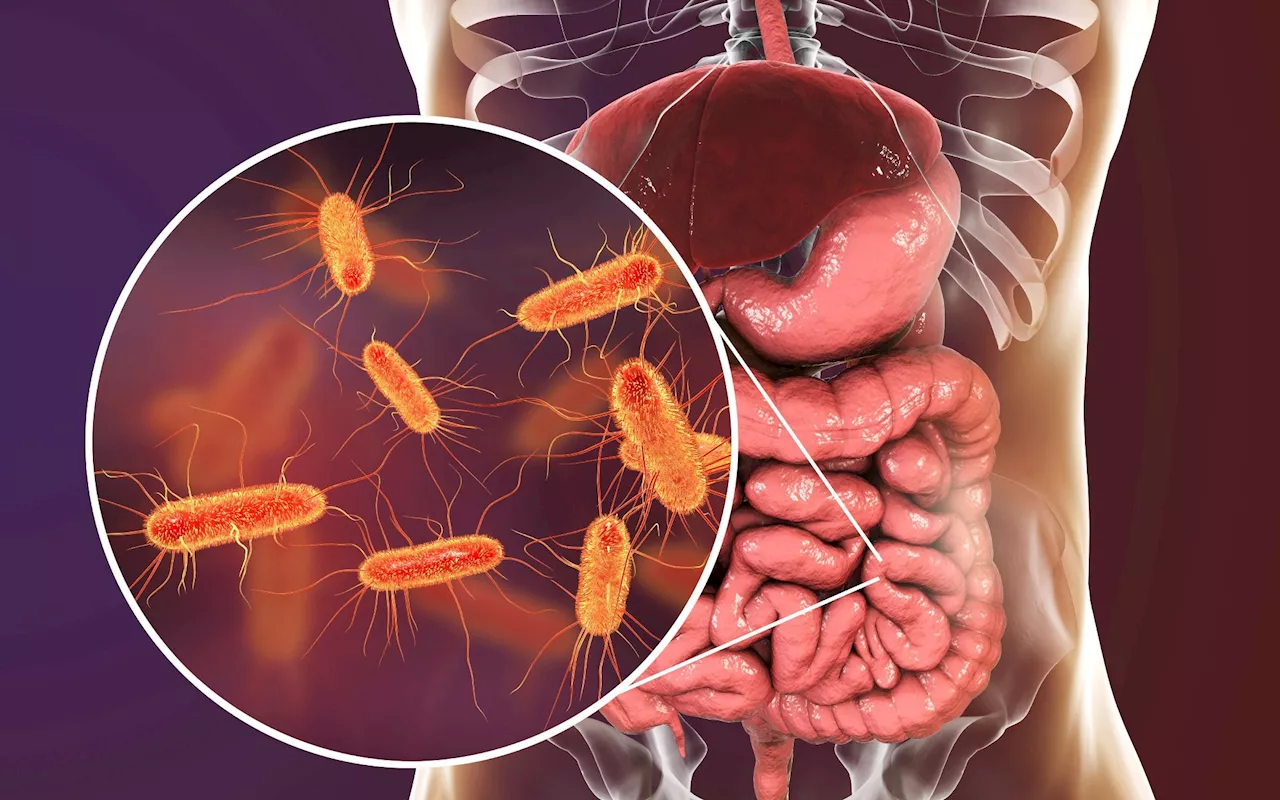 New study reveals gut microbiome's critical role in aging and heart diseaseResearchers in China discovered that gut microbiome diversity, influenced by metabolic health and age, significantly impacts cardiovascular disease risk.
New study reveals gut microbiome's critical role in aging and heart diseaseResearchers in China discovered that gut microbiome diversity, influenced by metabolic health and age, significantly impacts cardiovascular disease risk.
Read more »
 Study uncovers gut microbes' role in childhood obesityResearchers used Mendelian randomization to identify causal links between gut microbes and childhood obesity, revealing key microbial players that influence pediatric adiposity.
Study uncovers gut microbes' role in childhood obesityResearchers used Mendelian randomization to identify causal links between gut microbes and childhood obesity, revealing key microbial players that influence pediatric adiposity.
Read more »
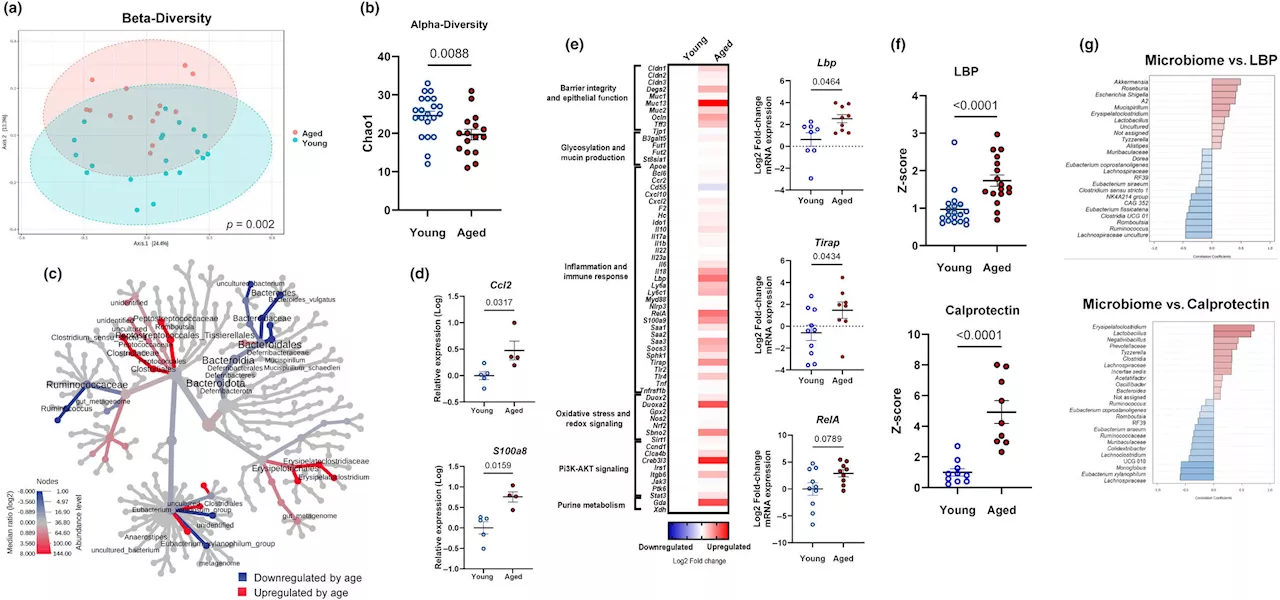 Gut microbes from aged mice induce inflammation in young mice, study findsWhen scientists transplanted the gut microbes of aged mice into young 'germ-free' mice—raised to have no gut microbes of their own—the recipient mice experienced an increase in inflammation that parallels inflammatory processes associated with aging in humans.
Gut microbes from aged mice induce inflammation in young mice, study findsWhen scientists transplanted the gut microbes of aged mice into young 'germ-free' mice—raised to have no gut microbes of their own—the recipient mice experienced an increase in inflammation that parallels inflammatory processes associated with aging in humans.
Read more »
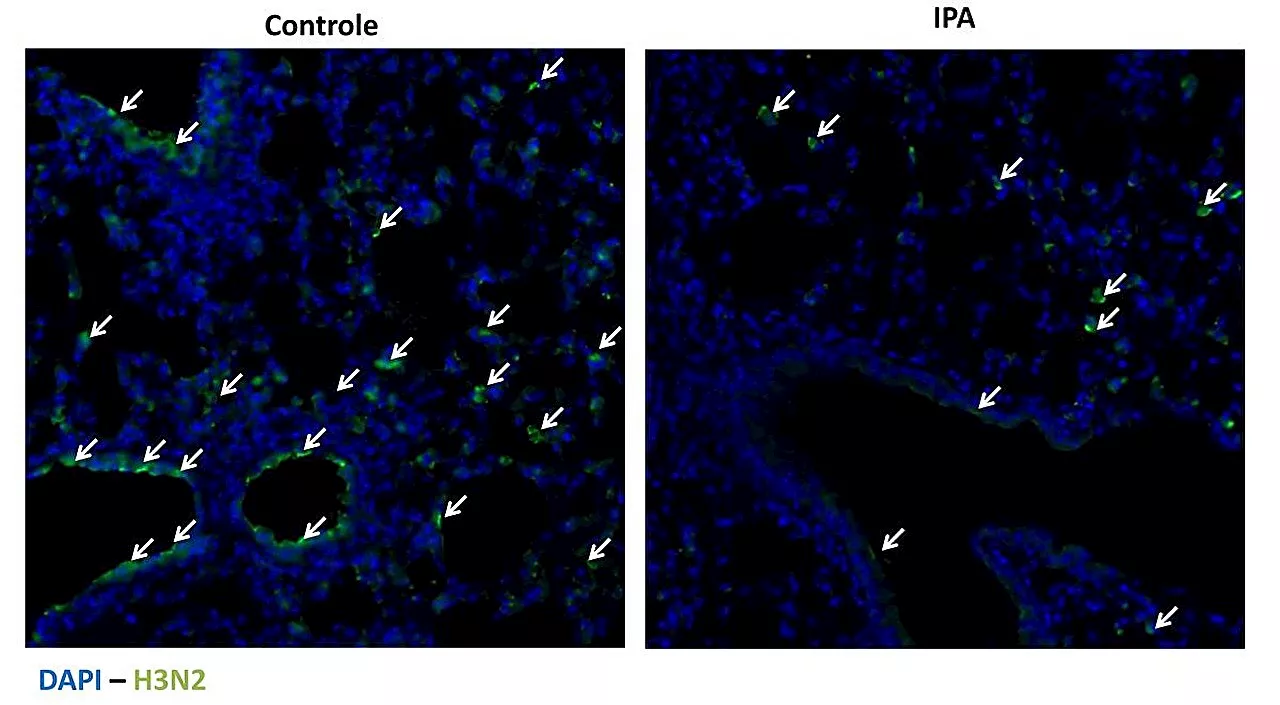 Molecule produced in gut can have protective effect against flu, study showsA molecule produced naturally in the gut can help prevent and even treat influenza, according to a study reported in the journal Gut Microbes by researchers at the State University of Campinas (UNICAMP) in São Paulo state, Brazil, and Pasteur Institut in Lille, France.
Molecule produced in gut can have protective effect against flu, study showsA molecule produced naturally in the gut can help prevent and even treat influenza, according to a study reported in the journal Gut Microbes by researchers at the State University of Campinas (UNICAMP) in São Paulo state, Brazil, and Pasteur Institut in Lille, France.
Read more »
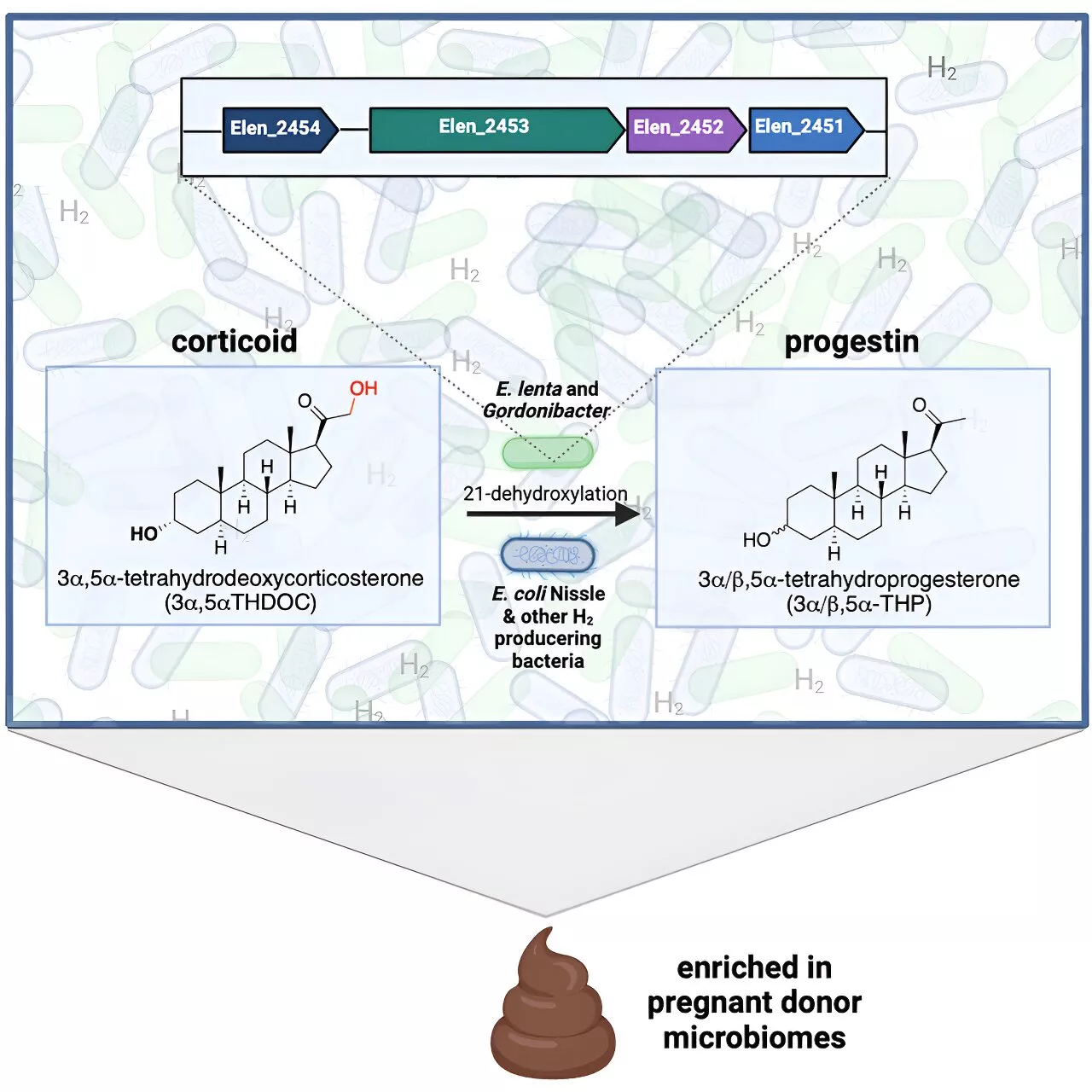 Study demonstrates how gut microbes process steroids—using flatulenceIt turns out flatulence can serve a purpose beyond being uncomfortable or funny: Gas released by some gut bacteria stimulates other gut bacteria to produce a hormone involved in pregnancy and in an FDA-approved treatment for postpartum depression, according to new research led by Harvard Medical School scientists.
Study demonstrates how gut microbes process steroids—using flatulenceIt turns out flatulence can serve a purpose beyond being uncomfortable or funny: Gas released by some gut bacteria stimulates other gut bacteria to produce a hormone involved in pregnancy and in an FDA-approved treatment for postpartum depression, according to new research led by Harvard Medical School scientists.
Read more »
